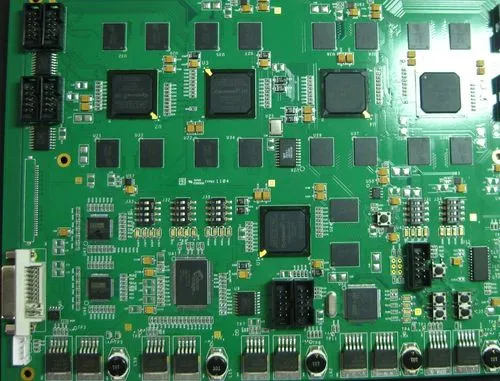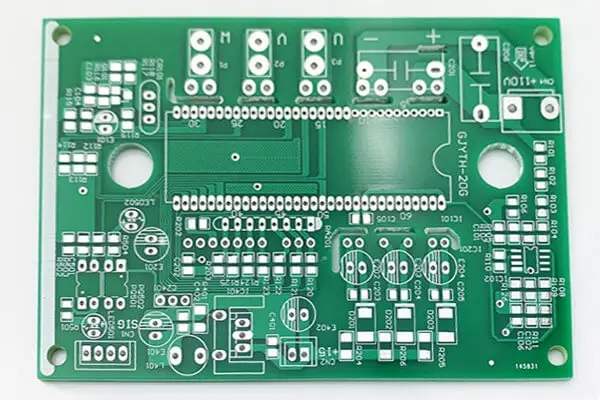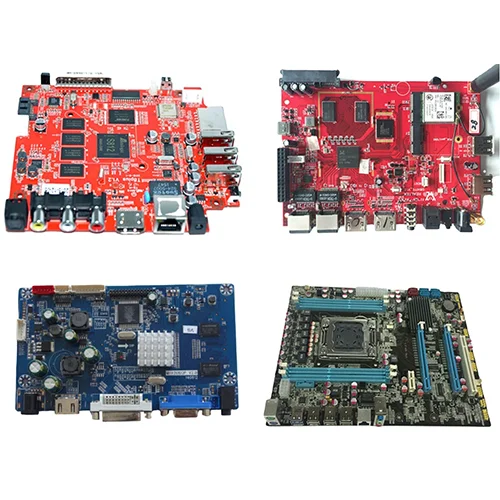
Detailed sharing of signal integrity issues in PCB design
Signal transmission is not strictly aimed at network designers, and your PCB design may encounter the same type of problems. Because you don't have to fiddle with your ears, preventing power integrity and signal integrity issues is critical for your PCB design to be smooth and static free.
HDMI, or Composite? Understand signals in signal integrity issues
Whether it is a cable with smart, flat screen TV or plasma TV, satellite, Netflix, Hulu, Amazon or YouTube, there are many ways to receive signals, so you can watch the TV you want. Similarly, most PCBs will include several signal types in both conventional and high-speed designs. Some of them are:
Power signal: Depending on the complexity, you may have several different levels of power signal. For example, most processors require signals in the 3-5 V range, while amplifiers may require bias voltages in the 15 V range.
Data signal: data can be analog or digital. For analog quantities, the typical range is+/- 10V. For digital signals, the range may be 0-5V or+/5V, depending on the signal format.
Control signal: usually used to open or close the equipment, usually 0-5V signal.
Communication signals: The signal strength of these signals may be as low as microvolts. These are usually RF, and the frequency may vary over a wide range. The circuit board manufacturer explains that preventing power supply integrity and signal integrity is essential for your PCB design to be smooth and static free.
In addition to signal strength, frequency is also an important consideration in PCB design for analog signals. This is particularly important in PCBs of communication devices with high frequency levels.

Output size and wiring considerations: How wide?
For very simple PCB designs, you can usually avoid design routes to accommodate extreme currents and voltages. For example, the maximum capacity can be handled using a single routing width throughout the process. Although this situation is far from best practice, your board may work properly in these situations. If you are like me, we hope to optimize our circuit boards by making them as small and multi-functional as possible.
For these more complex PCB designs, special care must be taken, and wiring is not that simple. We need to design routes that match the signals they carry.
Make sure the sound is muted
The noise in the transmission of older TV signals makes you try to see your favorite programs through the snow. Today, signal integrity issues, such as noisy transmission lines, can cause confusion or even no signal at all. The noise in PCB design can come from many sources. For example, the interference caused by the switch IC pin state, the interference of radiation devices such as oscillators to nearby wiring, multiple frequency signals on the same wiring, and other sources.
It is almost impossible to completely eliminate noise from most complex PCB designs. However, there are ways to minimize noise. The best asset to eliminate noise is the placement of components. All component radiation depends on frequency, and the higher the frequency (signal change), the shorter the distance from the light source. Therefore, components that process the same signal should be placed away from other components. Place components where signals originate and terminate with each other.
You can also try to implement decoupling capacitors or bypass capacitors. If possible, they should be tied directly to the ground and properly sized. Please note that any inductance will be combined with the capacitor to establish the filter circuit.
One twist: differential transmission
Whenever possible, signal integrity can be improved by using differential circuits. Most IC designers try to achieve this goal. However, sometimes differential pairs may be routed to pins that are not adjacent to each other. From the perspective of PCB design, we should perform the following operations:
Route the differential pairs together.
Use the same routing width and length as possible.
Wiring on the same signal plane or the same floor.
Ground plane simplifies signal integrity
The ground plane can provide a central layer reference for multiple circuits, which can significantly reduce the number of pin connections and routing, let alone simplify the appearance layout of complex PCBs. When designing PCB, the following techniques can minimize problems related to ground plane:
Make sure there is no direct path from the power plane to the ground plane (this seems easy, but for complex designs, you can ignore it until you start frying).
Do not insert gaps in the ground plane.
Run clock signals (or other critical signals) between ground/power layers.
Routes signals using the same loop (ground plane) on the same layer.
For boards with multiple ground planes, connect them together at the same point on each plane.
For boards with chassis connections, ensure that all ground planes are connected together.
When I move the rabbit ears of the old TV around to get the channel I want, there is always some crazy way: swing left, then swing right, and then slowly work back and forth until I find the right position. Best clarity. Fortunately, in PCB design, there are obviously more specific signal processing methods for signal integrity problems. By making the best routing decisions, adopting noise reduction strategies, using differential pairs when possible, and using good ground planes, you will significantly improve the chances of maintaining signal integrity. The circuit board manufacturer explains that preventing power supply integrity and signal integrity is essential for your PCB design to be smooth and static free.









